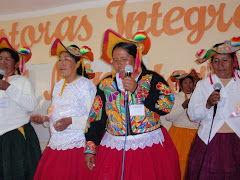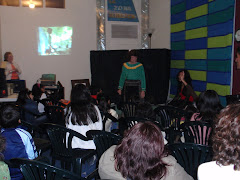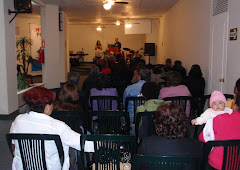However, most Peruvians have difficulty inventing and creating. They find it hard to break old paradigms and to accept new ideas. So when a Peruvian is presented a problem, he or she will immediately search their memory bank for something they have seen or done. If there is no point of reference, the typical response is confusion and bewilderment. In "brainstorming" sessions with our church staff, we often receive blank expressions and silence.
My cultural observations became a topic of debate at a recent pastoral meeting. Over the past several years the Peruvian Assemblies of God has been teaching a very specific model of church growth using small groups. This model is being promoted for every pastor in every church setting. It is a step by step process that can easily be repeated. Unfortunately few have experienced the same success as the "original" model. A few "original" thinkers are now starting to question this way of learning. They are calling for a philosophical shift that goes against cultural norms. They are asking for church growth principals that can be applied differently in different contexts. They are wanting creativity, not repetition. Current leadership is struggling to accommodate their demands because it outside their cultural "box."
In the meeting I had a chance to speak. I shared the following. "The action that naturally accompanies learned models is "repeat". The action that naturally accompanies learned principals is "apply". Scripture gives us principles rather than models. Paul creatively applied ministry principals in different contexts; culturally: Jerusalem vs Athens, religiously: Jew vs Gentile, environmentally: peace vs persecution, etc. He interpreted his setting, he listened to the Holy Spirit and he courageously ministered to meet needs. Most successful ministries tend to work this way." My comments were well received by some, but not by others.
The Peruvian Assemblies of God would be revolutionized by this new way of thinking. Only time will tell which voices will speak the loudest and which paradigms, if any, will be changed.










































No comments:
Post a Comment